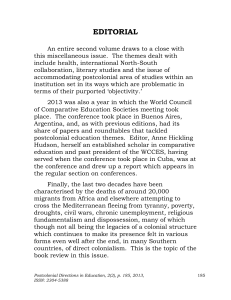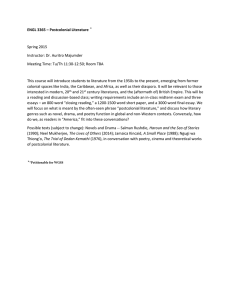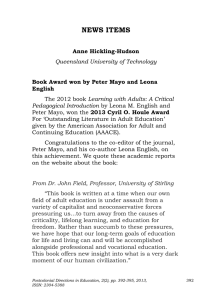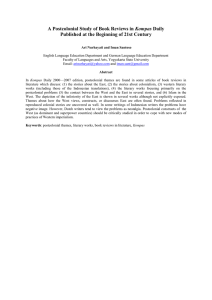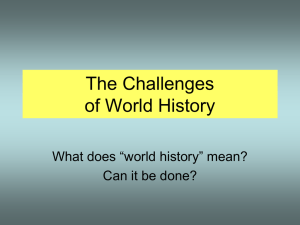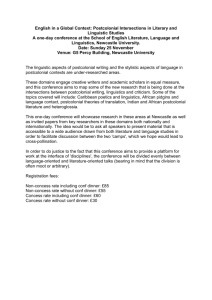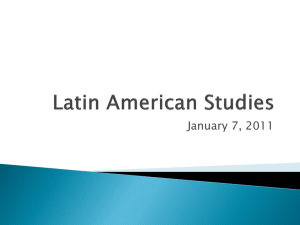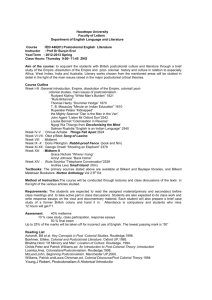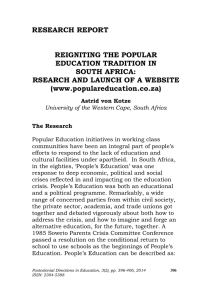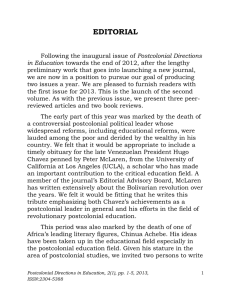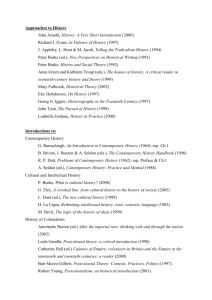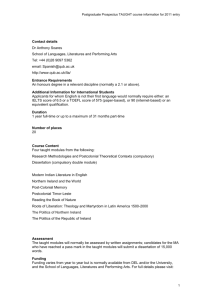EDITORIAL. ADULT AND POPULAR EDUCATION
advertisement
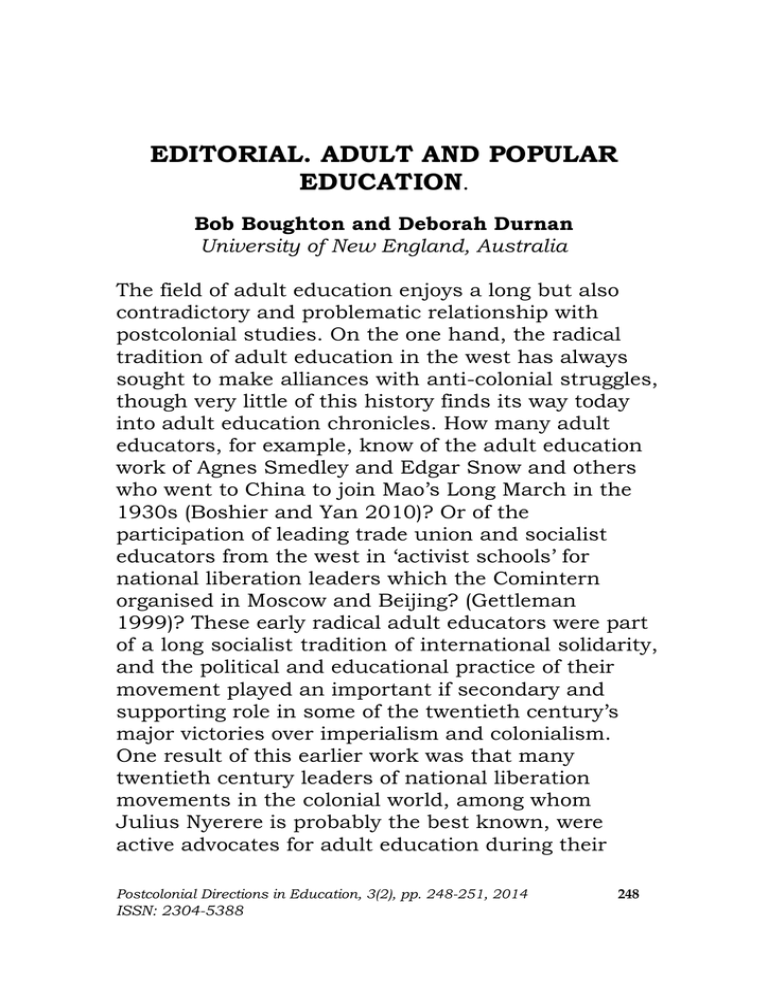
EDITORIAL. ADULT AND POPULAR EDUCATION. Bob Boughton and Deborah Durnan University of New England, Australia The field of adult education enjoys a long but also contradictory and problematic relationship with postcolonial studies. On the one hand, the radical tradition of adult education in the west has always sought to make alliances with anti-colonial struggles, though very little of this history finds its way today into adult education chronicles. How many adult educators, for example, know of the adult education work of Agnes Smedley and Edgar Snow and others who went to China to join Mao’s Long March in the 1930s (Boshier and Yan 2010)? Or of the participation of leading trade union and socialist educators from the west in ‘activist schools’ for national liberation leaders which the Comintern organised in Moscow and Beijing? (Gettleman 1999)? These early radical adult educators were part of a long socialist tradition of international solidarity, and the political and educational practice of their movement played an important if secondary and supporting role in some of the twentieth century’s major victories over imperialism and colonialism. One result of this earlier work was that many twentieth century leaders of national liberation movements in the colonial world, among whom Julius Nyerere is probably the best known, were active advocates for adult education during their Postcolonial Directions in Education, 3(2), pp. 248-251, 2014 ISSN: 2304-5388 248 independence struggles and in their postindependence development strategies, and became leading figures in the international adult education movement. On the other hand, adult education as a field of practice and a profession has always been dominated by writers from the North, and the majority of its practitioners and researchers have worked hand-in-hand with colonial authorities to promote less confrontational but in the end relatively ineffective western models of adult nonformal education in countries of the Global South. Moreover, in a milder but no less colonial form of the same ‘west is best’ syndrome, ‘northern theory’ continues to dominate the field, despite the fact that the vast majority of participants in adult education activities and much of the most exciting and innovative theory and practice are to be found in the Global South. This Special Issue of Postcolonial Directions in Education was inspired by the adult and non-formal education stream at the World Congress of Comparative Education Societies in Buenos Aries in October 2013, and our four refereed papers build on work originally presented there. This Conference provided an excellent opportunity to focus on this field, since 2014 was the fiftieth anniversary of the start of one of the twentieth centuries best-known experiments in adult education, Paulo Freire’s culture circles in Brazil. Our aim in assembling this issue has been to continue the popular education tradition with which Freire is associated, but also to demonstrate the continuing relevance of that work in the twenty first century. Postcolonial Directions in Education, 3(2), pp. 248-251, 2014 ISSN: 2304-5388 249 The first of our four refereed papers is by New Zealand scholar-activist Aziz Choudry, who continues a discussion begun in the last issue on the theme of activist research and social movement learning and knowledge. In this paper, he explores the nature of ‘struggle knowledge’ and its place in university classrooms. The second paper is by Salma Ismail, a South African popular education practitioner and scholar continues this theme. She utilises postcolonial theory to analyse the challenges to academic ideas of knowledge that have arisen through the use of Recognition of Prior Learning (RPL) to expand access to university places in postapartheid South Africa. The third paper, which is our own work, reports on the south-south educational cooperation work which Cuba is undertaking in the Pacific, through its innovative adult literacy campaign model, Yo Si Puedo, work which we argue is helping to fulfil Freire’s aspirations from mass literacy campaigns tied to an emancipatory objective. The fourth paper, by Daniel Schugurensky, introduces us to the ideas of social pedagogy, a term which may be new to many English-language readers, and which describes an emancipatory education tradition in Europe and Latin America. Social pedagogy, he argues, helps to bring together the currently disparate practices of social workers, community development workers and adult educators who share a common goal of social transformation. The issue includes two further pieces. The first is an account by Astrid Von Kotze of a project which aims to keep alive the historic memory of the role of popular education in the anti-apartheid struggle in Postcolonial Directions in Education, 3(2), pp. 248-251, 2014 ISSN: 2304-5388 250 South Africa. Finally, Rebecca Tarlau concludes our focus on popular education with a review essay of Daniel Schugurensky’s study of Paul Freire. References Boshier, R. and Yan, H. (2010). More Important Than Guns: Chinese Adult Education After the Long March. Adult Education Quarterly, 60(3), 284-302. Gettleman, M. (1999). Explorations in the History of Left Education in Nineteenth and Twentieth Century Europe. Pedagogica Historica. International Journal of the History of Education, XXXV(1), 11-14. Postcolonial Directions in Education, 3(2), pp. 248-251, 2014 ISSN: 2304-5388 251
